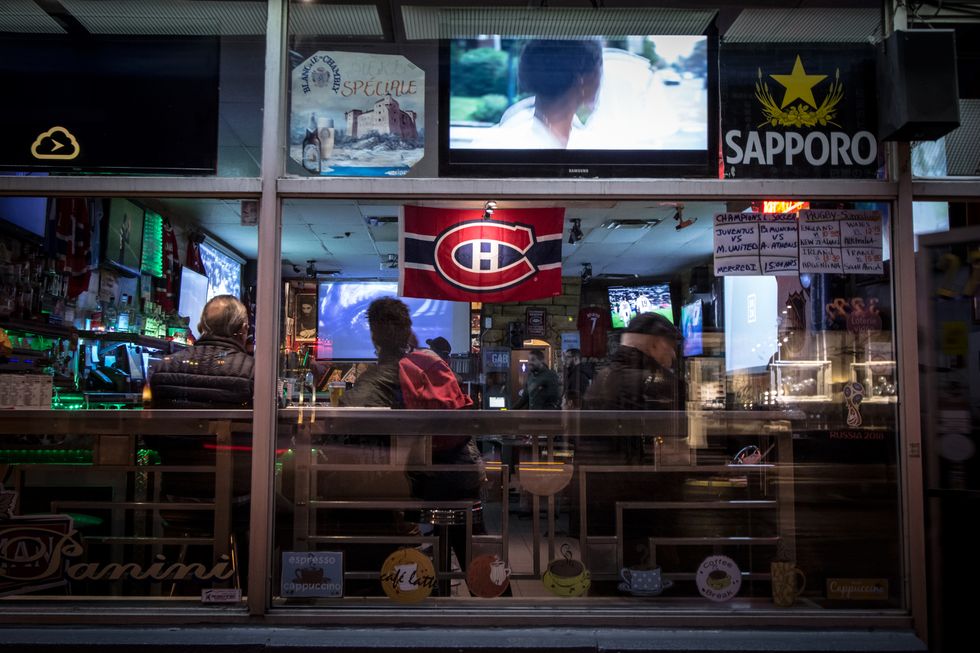Health Minister Christian Dubé declared on Monday morning that Quebec is officially in the third wave of the pandemic.
"There's no question whether there's a third wave or not — we are in a third wave," said Dubé.
Editor's Choice: Someone Got EXCITED About MTL Gyms Reopening & Started Doing Acrobatics On The Equipment
Dubé said that the key to fighting the third wave is to "control it" as much as possible.
The health minister suggested that the third wave is being spurred on by the COVID-19 virus variants that are spreading throughout the province.
Mayor Valérie Plante echoed his declaration on Twitter and saluted the efforts of the health authorities, saying that "the situation remains in control for the moment, despite the spread of the variant."
COVID variants are spreading in the province.
The health minister was accompanied by Dr. Mylène Drouin, Montreal’s public health director.
"Evidently, we’re seeing that the situation across Quebec is being aggravated [...] by the spread of variants," she explained.
On March 26, an INSPQ report estimated that these virus variants will become the most prevalent stains over the next month in Quebec and "will soon represent more than 50% of new COVID-19 cases in Quebec."
According to the report, these variant strains are 40% more transmissible than other variants.
Variants are being concentrated in "Cote-Saint-Luc, Plamondon, Outremont and are migrating towards Ville Saint-Laurent," said Dr. Drouin.
"People need to continue to get tested and to be as collaborative as possible with contact tracing so we can have as many vaccinations as possible," concluded Dubé.
Vaccination efforts, meanwhile, will continue.
As of March 22, a number of pharmacies in Montreal began to take vaccination appointments for people over the age of 60.
Along with the many vaccination sites on the island, the past month has seen an intensification of the number of vaccine doses being administered.
Dr. Drouin said that in Montreal, "around 19% of the population, [...] almost 1 in 5 people, have received their first dose
Does this mean things are closing in Quebec?
The government has not announced any further closures or measures during this third wave, yet.
As of Monday, high school students were allowed to go back to school full-time. Meanwhile, gyms have opened in all zones in Quebec.
Businesses including shopping centres and movie theatres remain open and will be allowed to welcome a limited number of shoppers indoors.
Bars and restaurants are still closed to the public but remain open for takeout and delivery.

 Bon Cop Bad Cop
Bon Cop Bad Cop  Bon Cop Bad Cop
Bon Cop Bad Cop Bon Cop Bad Cop
Bon Cop Bad Cop